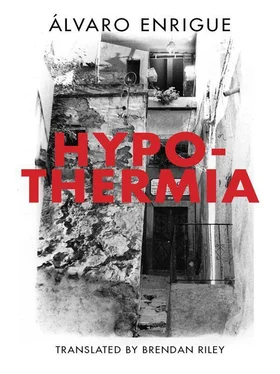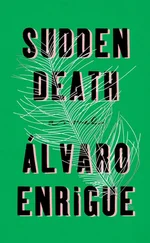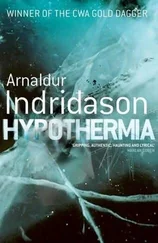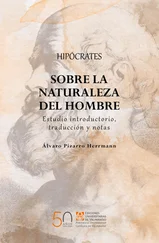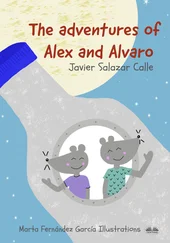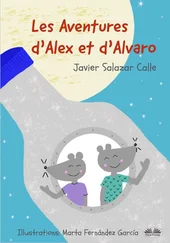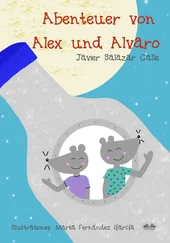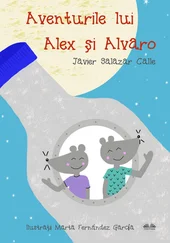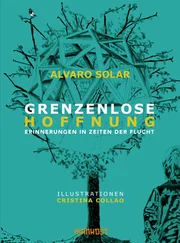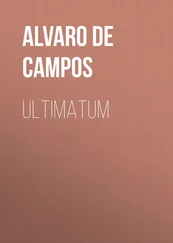While he was checking the barn door he decided to confront the man, if he was, in fact, still waiting for him, so he strode out decisively to the edge of the barnyard and faced him with his arms crossed, either to extract an explanation, despite this being, after all, impossible — or perhaps to scare him away. The man pointed to his mouth. Then, opening it and closing it exaggeratedly, he made a rather grotesque show of the action of speaking. Udina calculated that the problem could be eloquently resolved with his fists, but the night had now fallen completely and he could just as easily slip away. He lowered his arms and walked off to the cave that he had lived in during the war. As he approached the woods he quickened his step and managed to lose the stranger.
Early the next morning, the shepherd emerged from the far side of the woods with feline caution. He followed the long path to the farm and took the risk of moving the sheep out through the gate that opened directly onto the main road: the young owner didn’t usually come up to visit the fields except on the weekends, so there was little chance of being caught breaking the rules. He followed the rocky path to approach the coastline pastures from the other side. Followed by the sheep, he climbed the flanks of one of the mountains that isolated the place from the rest of the island. From there he made sure that the stranger wasn’t waiting for him at the back gate of the field. He continued confidently toward the sea and spent the day in peace, avoiding his rock. Not finding an appropriate lookout from which to watch the declining afternoon, he returned early along his usual path. The stranger was waiting for him, red from the cold, leaning against the ancient stone wall that protected the vineyards. He was wearing the same clothes as the day before, except for his footwear: some army boots that stood out conspicuously beneath the cuffs of his pants. The consequences of the sheep getting into the vineyard or the olive grove were much more serious than putting up with the visitor’s gesturing for a little while. So Tuone kept on walking.
The man blocked his way and insisted on speaking with him; he pulled out the same paper, holding it up before Tuone’s eyes, and again pointed to his mouth and pantomimed speaking. Tuone waited for him to finish. Then he drew close enough for the man to smell his woodsy odor, and threatened him, shaking his fist before the man’s eyeglasses. Against the visitor’s face, his heavily lined and calloused hand looked, for a moment, like a tree branch. As if to ward off the blow, the stranger lifted his dainty hooves — rosy pink despite his fingertips bruised purple by the cold — took a step back and pulled out a wad of money from inside his jacket. The slightly ridiculous color told the shepherd right away that it was Italian money. He lowered his fist: perhaps now they could understand one another.
The visitor took one of the bills and held it out to Udina, putting the rest of the money into his pants pocket. The shepherd took the bill and studied it skeptically. He knew that in Rijeka they accepted both lire and marks, but he couldn’t distinguish between the different denominations. Then the man picked up a stone from the ground, pointed to it and mimed the action of speaking. As Udina didn’t react, he opened and closed his fingers, making the shape of a duck’s bill, and patted the outside of the pocket where he had put the other money. Tuone thought a little, then barely murmured the word “stone.” The visitor froze like a rabbit, his eyes open wide behind his glasses. A smile formed beneath his mustache, he took out another bill, gave it to the islander, and pointed again to the stone. Udina repeated the word a little more carefully; the man gave him a third bill and a pat on the shoulder. The shepherd pointed to the road leading to the farmhouse and the sheep that were already starting to wander away again. His visitor nodded and made a gesture that Udina interpreted as an invitation to meet there again the next morning. Neither one of the two was moved to touch the other to say good-bye: they both raised their hands, the stranger cordially and the islander somewhat clumsily, the branches of his fingers barely flexible in that moment of civility.
Between the third and fourth days of the Italian’s visit, Tuone Udina made more money than he had earned in his whole life. The professor pointed to some object and Tuone said a word, first as he remembered having pronounced it in his youth, and then slowly, sound by sound. Sometimes he had to repeat it several times, slowly or quickly. When the visitor felt satisfied, he made a note of it and gave away some more money. Then he flipped through his notebook — the pages fluttering in the wind — or laboriously wrote down the new term on the piece of paper that he had showed Tuone days before.
The lire and the shepherd’s good will came to an end at the same time. The visitor thanked him with exaggerated gestures and acted out a little play that was meant to signify his return in a few weeks with more money and a doctor who would heal his gums. The most challenging part of the message was showing the passage of time: in his pantomime, he slept and woke up several times in a row. Udina understood from the first moment but pretended not to so he could enjoy the twisted pleasure of watching a city dweller throw himself to the ground, clap his palms together and place them under his cheek like a pillow, close his eyes, open them, then get back up and do it all over again.
When he returned to his office at the Museum of Archaeology in Rome, Professor Spazzola took his time organizing the information he had gathered on the island. Tuone Udina, the last speaker of Dalmatian, was not only a biological disaster, he was also a mental disgrace. In the scarcely sixteen hours they’d spent together, the shepherd had systematically and diametrically varied the nouns that Spazzola, with seeming carelessness, asked him to repeat from one day to the next. Nothing, or almost nothing, in the few grammatically acceptable expressions that he managed to coax out of him, showed any consistency at all. The majority of the sounds Udina emitted were indistinguishable due to the atrophy of his vocal cords, the impossibility of articulating consonants through his swollen gums, and his basic stupidity. There had been no correspondence — however remote — between his vocal production and the few documents that the Dalmatian rulers produced in the twelfth and thirteenth centuries, when they had the opportunity to govern the territory granted them by Rome. The professor had taken one of them with him, copied in modern script in the hope that the shepherd — about whose state of health he had not been notified before the trip — might possibly have learned the alphabet during his childhood in Veglia, which had then been the last bastion of that most defenseless of Romance languages.
Despite everything, the professor was able to resolve some of his doubts about the survival of Latinate vocalization in Illyria. A certain liberality of reflection permitted him to overcome the narrow limits of his frustration and so publish, with great fanfare, an article in a world-renowned Viennese philological journal. A round of conferences — with a decidedly nationalist focus — on the university circuit served him well by spreading through the newspapers the fear of a Romance language becoming extinct, and thus alerting the government. Under the auspices of a gala dinner, the Ministry of Antiquities secured the funds necessary to rescue the last living speaker of Dalmatian from Austro-Hungarian ignorance and oppression and bring him to the imperial city that had once, with greater wisdom, governed the lives of his ancestors.
Tuone Udina never in the least expected that his visitor would return to keep the promise of helping get his gums cured, for which reason he saved the lire for some special moment when he would really need them, and he forgot all about the matter. He put the money in a wooden box and buried it in the back of his cave.
Читать дальше
